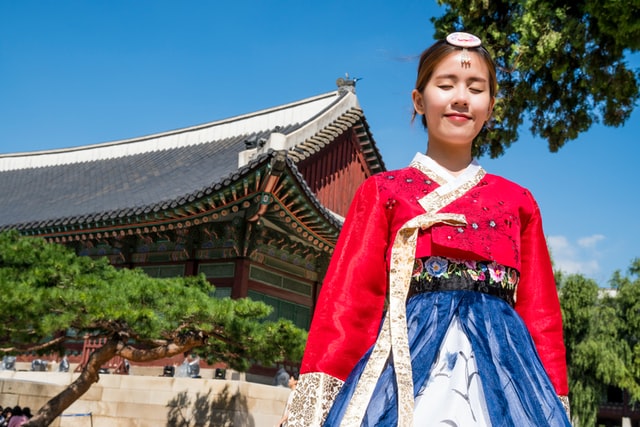Is hosting an exchange student a good way to make a friend in Korea? Definitely! But do look before you leap...
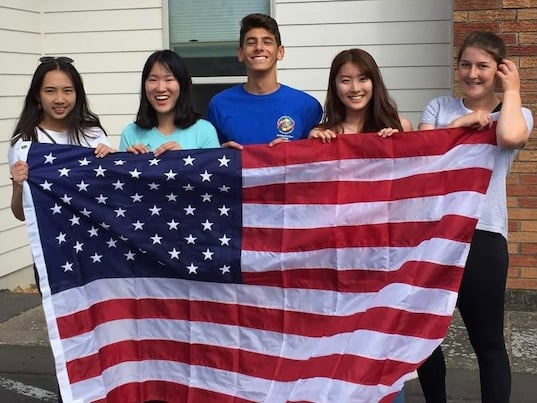 Jasmine (2nd from right) spent a year in Oregon. Her learning and friendships will last a lifetime.
Jasmine (2nd from right) spent a year in Oregon. Her learning and friendships will last a lifetime.
Every year South Korea sends a new generation of wonderful young people to every corner of the USA to live with host families and share their culture. You are welcome to join this international relations project, but please read this guide first.
- What should you know about Korean Culture?
- How can a Korean student enrich your life?
- How can you share American culture?
- Is a Korean student a good fit for your family?
- How can you host happily every after?
A big thank you to Jasmine Kim for sharing her wonderful experience and advice for host families after spending a year in Oregon.
And many thanks to ICES regional and national staff for sharing decades of experience working with students from South Korea. We appreciate your help in creating this useful guide for hosting Korean exchange students happily ever after!
Korean Culture 101 for Host Families
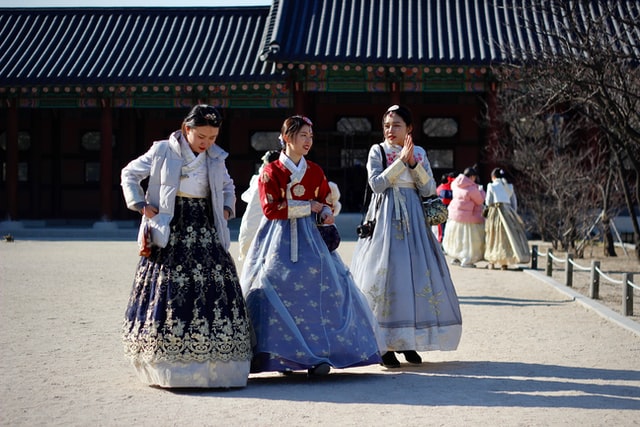 Students from the Republic of Korea have a rich, fascinating culture to share with host families.
Students from the Republic of Korea have a rich, fascinating culture to share with host families.
Before inviting someone from Korea to live in your home for an academic year, here's a quick look at the culture, from a hosting point of view.
Academics
The Republic of South Korea could be the world's "most educated country". By US standards, Korean kids can seem obsessed with academics. "Korean culture pushes you to be the quiet person, studying," explains Jasmine. "Parents want you to be good at education. So you don't spend much time on fun." A year in the USA is a wonderful chance for a Korean young person to expand horizons and try new things, and most are eager to do so with a little encouragement from their host family.
Authority
The Republic of Korea is a democracy that thrives on hierarchy and respect for authority - at home, at school and throughout society. Students bring a respectful attitude of gratitude with them to the USA. "We care about "levels" (hierarchy) and we genuinely respect anyone at a higher level," Jasmine explains. "We do question authority, but we still do what our elders say."
 Seoul, the capital of the Republic of Korea is a bustling hub for culture and technology.
Seoul, the capital of the Republic of Korea is a bustling hub for culture and technology.
Communication
The Korean communication style is soft, gentle and very indirect - to keep the peace, protect other people's feelings and promote goodwill. Students bring this culture of kindness and caring to the US, and feel compelled to continue showing the same respect and courtesy required back home.
"Koreans don't say things directly," says Jasmine. "We want to avoid hurting feelings." Furthermore, a special kind of listening is important in Korean culture. "We believe that in order to understand what someone is talking about, you have to hear the whole story."
The whole story, in Korea, includes body language. "You must notice the body language," Jasmine insists. "Even though Koreans are not very expressive, you have to pay attention. For example, it's hard to say no in Korea. When we say yes, it could mean no, so you have to pay careful attention to our face."
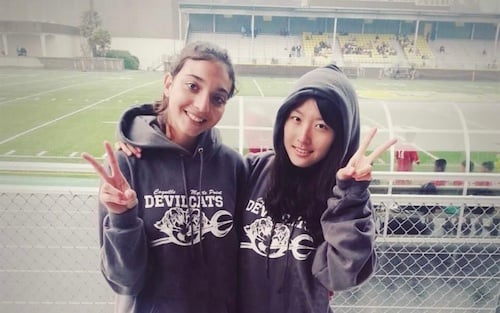 Jasmine (right) enjoyed sharing her Korean culture with her host family and friends.
Jasmine (right) enjoyed sharing her Korean culture with her host family and friends.
National Character
Korean parents teach their children to be quiet, serious and very studious. Korean exchange students tend to enjoy privacy and personal space. They like to spend quiet time in their room, studying, on their phone or computer, even just chilling out. However, many of these kids thoroughly enjoy the chance to experience a different way of life in the USA: extracurricular activities, playing board games with their host family, even just simple things like going out for pie or ice cream.
Relationships
In Korea, life revolves around family. Students bring this value with them to the USA, and generally hope to bond with their host family - for life. Traditionally there is a particularly strong bond between mothers and sons as historically women would leave their family to join their husband's family, and sons would look after their parents.
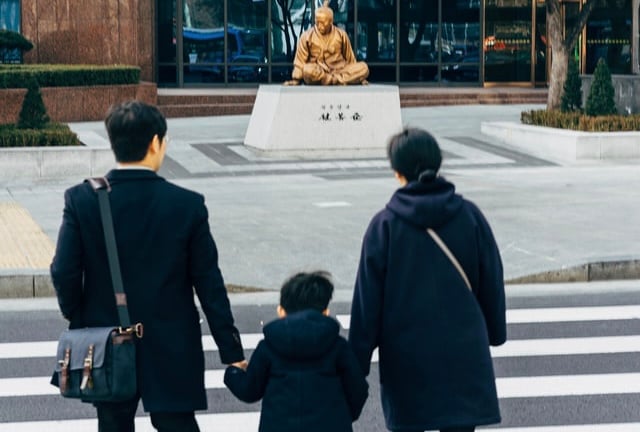 Building trust with a student from Korea takes time, but pays off in strong bonds.
Building trust with a student from Korea takes time, but pays off in strong bonds.
Technology
Technology is a sign of progress in Korea, and people are proud to use technology and see their children doing the same. Students will be puzzled by American families that are concerned about things like "screen time".
"My host mom had limits for using my phone and Internet," recalls Jasmine. "It was really hard at first, but in the longterm it helped me connect with friends and become really Americanized." And being a respectful Korean young person certainly helped her give host family's rules a try - and enjoy the positive results!
Enrich Your Life
What happens when a Korean student comes to live with you? Life becomes richer and more interesting. Here are just a few things these students share with their host families:
Taste Authentic Korean Cuisine
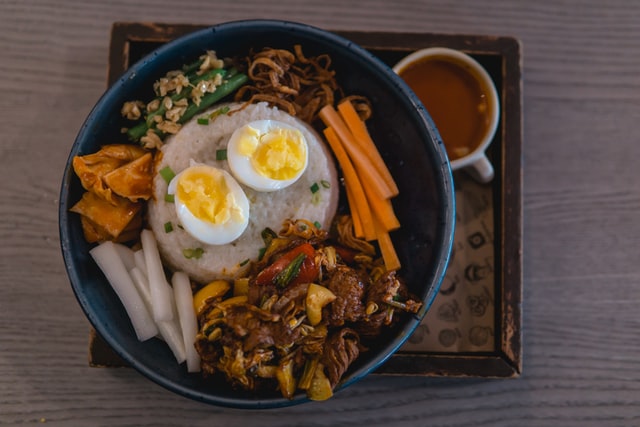
Beef Bibimbap is one of many healthy, tasty dishes students from from Korea.
Many Korean students cook up real recipes from back home. Most enjoy sharing their foods and flavors with Americans. But don't just try the food, discover the whole culture that goes with it: What do they eat? When? How? With whom? And why? Note: If you don't already know how to use chop sticks, your Korean exchange student is an expert and will gladly teach you!
Enjoy Calm and Quiet
A Korean student can show you how to remain calm in the middle of your life storms. These kids are not only quiet, they learn how to cultivate serenity. But once again, don't just learn about it: give it a try. How many days can you keep that peaceful feeling going?
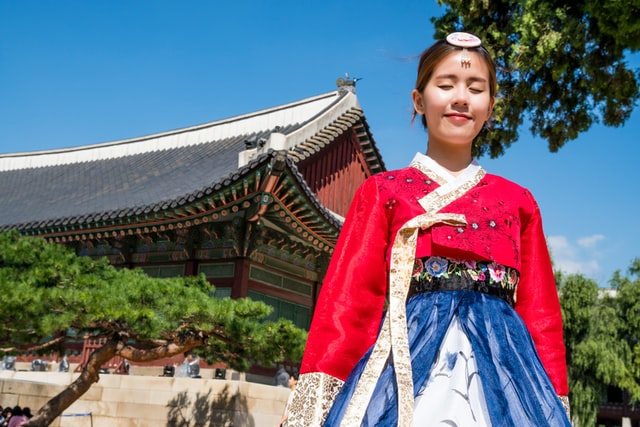
Experience Real Respect
Korean young people are skilled in the art of showing respect. How is their way of showing respect different from the "American way"? You can learn from experience by living with daily displays of this special attitude that comes from the heart.
%20kraked.jpg?width=1412&name=IMG_8667%20(1)%20kraked.jpg) Jasmine enjoyed her high school exchange so much, she returned for college.
Jasmine enjoyed her high school exchange so much, she returned for college.
Expand Your Horizons
"Hosting a Korean student is an eye opener for an American family. The cultures have so many differences," explains one ICES Regional Director in our survey. What's more, Korean students tend to love sharing their culture with their host families. Are you looking to learn something new every day? This may be just what you need.
Share Your American Culture
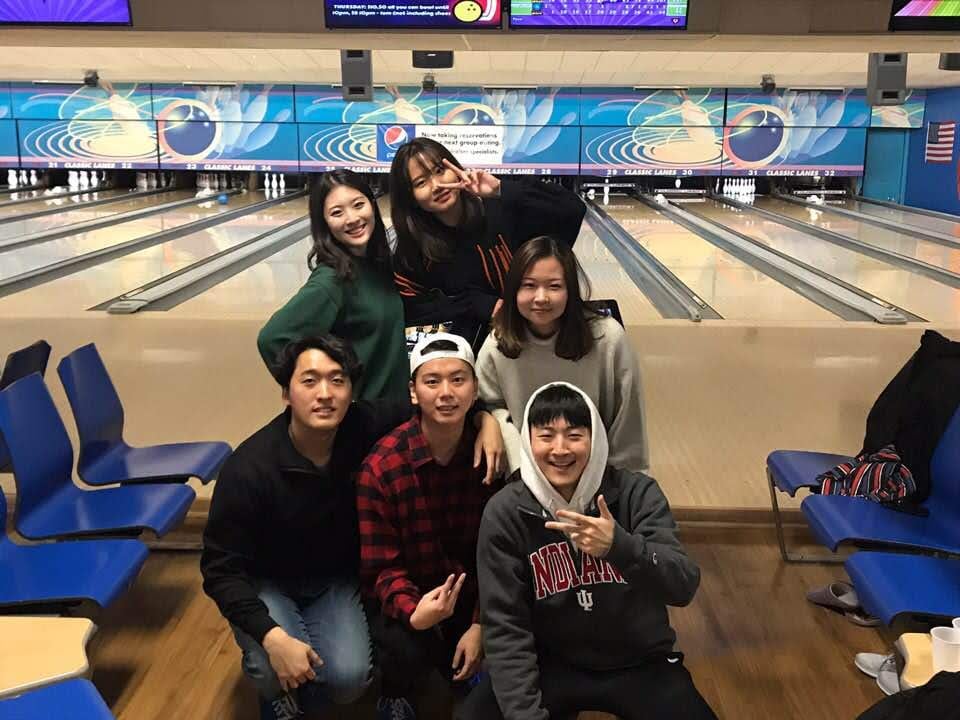
Jasmine (second from left) bowling with other Korean students also living in the USA.
American host families delight in sharing American culture with students from Korea. Why? Because after years spent studying so hard, they truly delight in many small pleasures we take for granted in the USA.
Here are some of Jasmine's favorites:
- Scavenger hunts - she loved doing this with her host family.
- Shopping at a mall - most Koreans love shopping.
- Eating out - local restaurants will be lots of fun for them.
- Hiking and fishing - most Koreans don't do much of this back home.
- Cooking local food - this will be an interesting, new experience.
- Meals - many American foods are exotic for Koreans.
- Games - your old board games will come to life as you teach them.
- Errands - every item on your list could be a fascinating adventure.
- Relatives - your student may very much enjoy meeting them.
- Treats - going out for pie or ice cream might even seem novel.
- Baking - learning to make your favorite recipes will be fun.
- Church - many of these kids are more than happy to go.
- School - it will be a very different experience, an adventure even.
- Sports - attending a local game should be a noteworthy experience.
- Holidays - each well-known tradition for you will be new to them.
- Home - and remember, Koreans tend to enjoy time at home too.
Is Hosting a Korean Right for You?
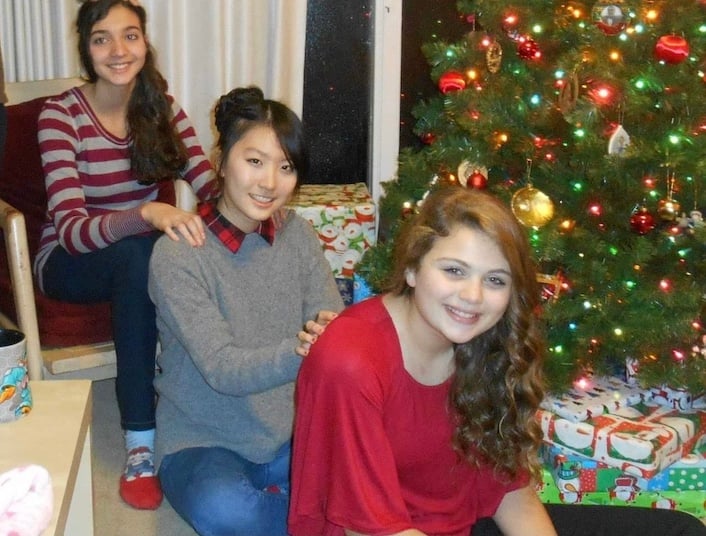
Jasmine's host family was just right for her, sharing a mix of fun, family activities, healthy limits for phone/computer use - and plenty of time to study.
Every family is different, and each one evolves and changes over time. Korean exchange students tend to thrive with families like these...
- Empty Nesters - These are experienced parents who like quiet, enjoy having young people around and don't mind if their student spends lots of time studying. Korean students tend to thrive with older host parents, enjoying the structure and support they provide - especially if this comes with a laid back, chill-out-at-home lifestyle.
- Culture-Crossers - These are families who truly love learning about different cultures and really want to experience Korean culture in their own home. These families tend to be knowledgeable about cultural differences and happy to take the time to communicate with their student, teach the student about American culture and ask many, many questions about Korea.
- Academics - These are families that value academics. Sometimes these families are looking for an older sibling to provide a good example for their children. A Korean student can thrive in this type of family as long as there is enough peace, quiet and time to study.
- Video Game Players - These are families that enjoy playing video games together. Many Korean boys love playing video games and will thrive in a family that shares this interest. However, they will still need plenty of quiet time to... study.
- Churchgoers - These are families of faith who wish to share their life with a Korean student who will appreciate their values, beliefs and lifestyle. Some students from Korea who come to the USA to study are religious. These kids often thrive in a family who will include them in church activities.
Enjoy Hosting Happily Every After
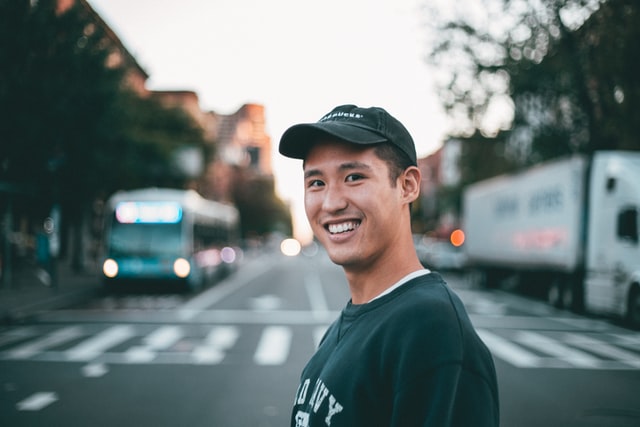
What are the keys for living happily ever after with a student from Korea? Here's a list of tips from experienced ICES staff, as well as some input from Jasmine:
Learn about Korean Culture
This guide provides a starting point, but don't stop here. Just a little learning about the Korean culture and communication style will go a long way. It will spark your curiosity and make you more effective. You will listen differently (especially with your eyes). And you will speak slowly and carefully, repeating your message as needed - and posting the important stuff in writing, on the fridge, for example.
Carefully Communicate Your Expectations
Korean students are so eager to please, they just need to know what you expect. Do make a list of your expectations, rules, and family routines. Post it on the fridge to review once a week for the first few weeks. At each weekly review, add new insights to the list. This will help your student be successful - and happy.
Jasmine recommends keeping the tone positive while communicating very clear expectations. "Even though we are used to the 'respect your elders' type of culture, we appreciate it if the host parents communicate the issues/boundaries without sounding like they're nagging. Most Koreans have come to the U.S. expecting there would be no more nagging, ha ha!"
Ask Indirect Questions
If something seems amiss, it's best not to ask direct questions like, "What's wrong?" According to Jasmine, it could be very difficult for your student to say anything you might not like to hear. Instead try an indirect question like, "How would this work in your country?" or "What would your parents do in this situation?"
Other questions Jasmine recommends include: "What time do you usually go to bed and why? How do you spend time with your family back home? What do you like to do for fun? What are your pet peeves? What is your expectation from this experience (aka, what do you want to get out of this exchange student program)? What is your communication style? In what environment do you study the best?"
Don't Take Yes for an Answer
Always remember how hard it is for Koreans to say no. Whenever you get a "yes" or a "yeah", keep an eye on body language, especially facial expressions. It never hurts to remind your student that it is perfectly fine to say no in the USA. Then, you might proceed to ask a few indirect or general questions (see above) to make it easier.
Speak Slowly and Demonstrate
Some Korean students arrive in the USA with very basic language skills. Your patience will be rewarded as your student grows to trust (and love) you. So, speak very slowly during the first weeks. And don't just say it. Whenever possible, show it. Also be aware that many Korean students learn British English, and may be unfamiliar with some American vocabulary.
Don't Expect Eye Contact (at first)
Many Korean students learn not to look adults directly in the eye, so don't take it personally--it's actually a sign of respect in Korean culture. This is a cultural difference worth talking about. It will be a good experience for your student to learn how to do things differently while in the USA, but it may take them some time to adapt to changes like this.
Take a Stance on Technology
Prepare for personal and cultural differences around the use of technology. Set clear guidelines from Day 1. How much time per day can be spent on phones, computers and video games? When should devices be put away? When should they remain in common areas of the house? Why is this important to you? What do you hope they will do with their time instead?
"I think the best advice I can give American host families would be allowing the Korean students to use their cell phones during the day time, but with a phone curfew and some limits," says Jasmine. "Like students can only use the phone until 11:00 p.m. or can't use their phone while having family/dinner time, etc."
Make Family Time Mandatory
Your Korean student has learned to please parents (and society) by studying all the time. Do this kid a huge favor and make it mandatory to participate in family meals, outings, game nights and even running errands with you. It might be hard at first, but your student will thank you later.
Encourage Extracurricular Activities
Once again, the single-minded focus on studies in deeply ingrained in Korean students. If your schedule permits, encourage your student to try something - anything - after school. If not sports, how about a club? Many school clubs only meet once or twice a month which can be a perfect fit. Your student can branch out, but still... study.
Accept Cultural Differences
Even though your student is in the USA to learn new ways and adapt to a very different culture, it's helpful to take cultural differences in stride. Your student has learned how to be quiet, studious, busy with phones, computers and video games. That's all part of modern Korean culture. It's not personal, so the more you accept these features as fascinating cultural differences to be explored, the easier it will be to build trust and share your lifestyle and perspectives as you teach your Korean student to adapt to your family's culture.
Have Fun!
Hosting a student from any country can be fun. That's why so many families choose to do it, again and again.
People the world around enjoy having fun, and that goes for Koreans too. So, take the time to do fun things together. Little things. Shopping. Cooking. Meals. Walks. Netflix. Super Bowl Sunday...
And don't forget the ice cream!

